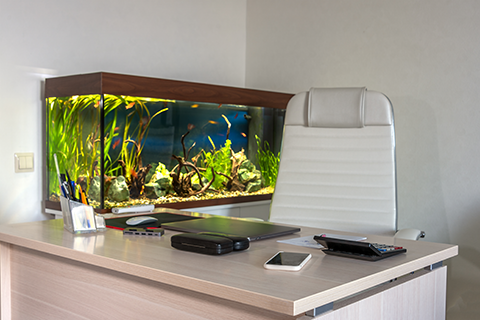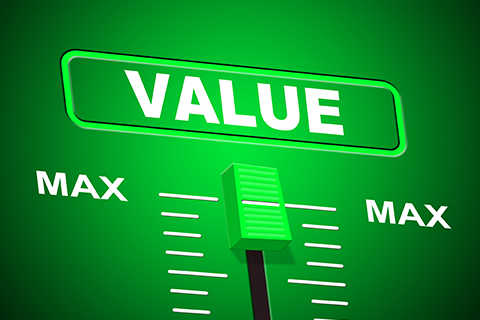Every year, millions of taxpayers overpay their taxes. But did you know you could be missing out on tax-deductible business expenses? Justin D. Smith, owner of Tax Learning Network, answers the most common questions people ask in order to take advantage of business expenses.

What are business expenses?
Whenever we meet with clients, many are surprised to learn what they can actually classify as business expenses and even more are unaware of how to classify those expenses.
The IRS cares about two things when considering business expenses. An expense must be both ordinary and necessary. Ordinary means the expense is common for your type of business. For example, a dentist generally doesn’t need a tractor to run their practice. Necessary means the expense must be necessary to conduct business. Software is a perfect example of this. A dentist needs various business and medical software to run their practice.

How can I justify business expenses?
This means that dentists must have a story as to why an expense is both ordinary and necessary. Now, don’t get too hung up on letting this become an overwhelming process. There are expenses that every medical professional will incur as part of their business.
These are just a few common business expenses that you don’t need to spend any time justifying:
- Office supplies (paper, pens, clipboards, etc.)
- Software (there are tax benefits to the monthly fees you pay!)
- Employee salaries
- Employment taxes
- Employee insurance
- Liability insurance
- Malpractice insurance
- Building lease/rent
- Equipment lease
- Lobby magazine subscriptions
- Televisions for office
- Disposable dental supplies
- Tools of your trade
- Goodie bag items
- Many, many, more!

What about the business expenses that may not be as clear cut?
You will run into many situations where a business expense might be questionable for a few different reasons. These are just a few of the questions that you may ask yourself, whether you are a dental veteran or a new dentist who just started your own practice. The truth is that there are thousands of statues in the internal revenue code — and some states even have their own rules!

This business expense is both ordinary and necessary, how do I classify it?
This is actually quite simple. You determine what the purpose of the expense is to determine the category or categories to place the expense. One expense may serve a dual purpose and fall under multiple categories. The important thing here is that you take your best estimation of what amount should fall into each category.

Is it really important to put business expenses in the appropriate expense category?
Yes! This is very important because the Internal Revenue Service and State Taxing agencies generally compare you to other businesses in the same field. So, you want to ensure you are doing the best you can to place business expenses in the right categories so that categories don’t appear inflated.
For example, if most dentists with $2 million of gross revenue have annual rent expenses of $120,000 in your area, then your rent should be close to that $120,000 average. If your rent is 2-3 times higher than that, the IRS may be inclined to review your expenses.

Are there specific rules on how much I can actually claim?
Yes, there are certain items that have specific rules on how business expenses should be treated for tax purposes. The list is endless, so we can’t specify all of them here — but it’s important for you to know that certain expenses must be handled in certain ways.
Example 1: A dentist may purchase X-ray equipment for their office at a cost of $40,000. This cost includes all costs for purchasing, shipping, and installing the equipment. Generally, you cannot take the full $40,000 as an expense in the year you buy the equipment. You must amortize/depreciate, or spread out the cost of that equipment over a set period of time allowed by the IRS. There are certain tax years that the law may be different for that year only, and you may be able to depreciate more. Reach out to your tax professional (or us a Tax Learning Network) for the specific rules, as they tend to change almost every year.
Example 2, referral gift cards: It is very common that medical offices will give referral bonuses to patients for referring their friends and family members. It is also common that newer practices that are hungry for business may offer a higher referral bonus than a veteran practice that has been around for years. These should be classified as business gifts rather than marketing expenses. It is important for these newer practices to know that the IRS imposes a deduction limit on business gifts at $25. So if you offer a $50 referral gift card, you will only be able to deduct $25 of that as an expense.
The most important thing that you should know is how important it is that you have a system and that you are diligent in keeping your records.
To be successful, your system must have three key characteristics:
- Repeatable: The system must be easy enough that multiple people can do each of the tasks. Clearly everyone in the office will have their own roles, but a successful business operation thrives on a team’s ability to understand each other’s role. In the event of an IRS audit, a team of people sharing the same voice is considerably stronger than a lone ranger.
- Teachable: The process should be simple enough that newcomers can learn it easily.
- Documented: How many times have you called into an office and someone says “Norma usually does that and nobody else knows how to do it.” Doesn’t that drive you crazy? The process must be documented so that there is an authoritative source, rather than someone saying “this is the way I was shown to do it.” Authoritative sources can be great references for employees if the IRS every comes knocking.
Your system can be comprised of whatever tools and manual processes make sense for your business’s operation and goals. If you need help setting up a functioning system, you can reach out to Tax Learning Network for consulting services.






